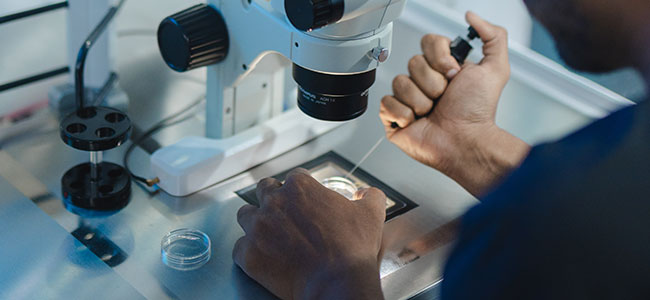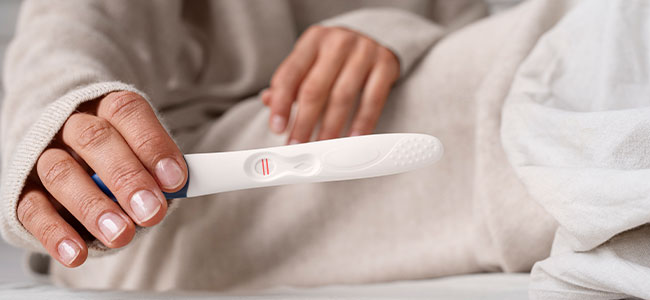


Intrauterine Insemination (IUI) is a type of minimally invasive fertility treatment that involves the process of placing a concentrated and healthy sperm directly into the uterus of a woman around ovulation time so that pregnancy can be achieved. This fertility treatment is less expensive than IVF, and it aims at improving the chances of pregnancy by bypassing mild infertility conditions. IUI is often the first choice of doctors before suggesting IVF because it is less complicated and minimally invasive.
One of the main benefits of using IUI is that it bypasses certain disruptions in the reproductive system. However, this process does not eliminate or treat underlying conditions. You can seek consultation regarding the appropriateness of IUI at the best IVF hospital in Siliguri or any location of your convenience.
IUI is commonly recommended under the following situations:
Irregular or absent periods make it difficult for a woman to achieve pregnancy. Underlying conditions, such as PCOS or thyroid imbalances, can cause ovulation disorders in women. Thus, an experienced IVF specialist might suggest IUI so that sperm can be directly placed into the uterus around ovulation time. This approach increases the chances of pregnancy because it involves sperm meeting eggs at the right time.
In women, if the cervix produces thick mucus, then it can disrupt sperm movement. It has been observed that cervical issues prevent the sperm from reaching the egg, which is known as cervical factor infertility. Even if there is cervical scarring, sperm movement can get disrupted. Therefore, IUI might be suggested in this case so that the cervix can be bypassed and the sperm can be placed directly into the uterus.
It is a well-known fact that erection issues, such as erectile dysfunction or ejaculatory dysfunction hampers intercourse between couples. Thus, proper sperm release might not be possible due to such issues, which hinder the ability to conceive. IUI might be suggested in such a situation if the couple wants to bypass this issue and achieve pregnancy because it involves placing the sperm through clinical intervention into the uterus.
Mild male infertility can be related to low sperm count, abnormal sperm shape (morphology), or poor sperm movement (motility). All these factors can cause trouble in getting a woman pregnant. If your male partner is experiencing such issues, then a top fertility doctor in Siliguri or a location near you might suggest IUI because it involves the process of “sperm washing”, which helps in putting the most active and healthiest sperm into the uterus.
If a single woman wants to achieve motherhood, then IUI is one of the best solutions, where donor sperm can be placed directly into the uterus of the intended mother. This process has empowered women to live an independent life while taking care of a child.
IUI is based on a systematic step-by-step process, which helps in achieving the best results in pregnancy. Here are the steps that take place:

This is the beginning of the process that involves consultation with the best IVF specialist at Newlife Fertility Centre in Siliguri. As a part of the consultation, an initial health check will be done based on semen analysis, hormonal blood tests, and ultrasounds.

The ovulation cycle of the female partner is monitored in this step because the sperm needs to be placed in the uterus around the time of ovulation. In addition, fertility medications, such as FSH or LH, are administered to stimulate the eggs. Lastly, a trigger shot (hCG injection) is administered before 30-40 hours of the sperm placement.

In this step, the intended father or donor provides a fresh sample of sperm. After the sperm is collected, it is sent to the highly advanced laboratory for washing, where the most active and healthy sperm are filtered by removing debris or fluids.

This is the main step where the filtered sperm are gently placed into the uterus of the intended mother by using a thin and flexible catheter.

After insemination, a 10-14-day rest period is suggested by the IVF doctor. Once the rest period is completed, a pregnancy test is conducted by using an accurate pregnancy check method, such as a beta-hCG blood test.
The use of high-level clinical expertise with advanced technology makes us a prominent choice for IUI in Siliguri. Here are the top reasons to choose us:
Our excellent track record of successful fertilisation is driven by the use of advanced sperm processing and placement techniques, which have been made possible by our state-of-the-art laboratory.
We offer a spacious and comfortable environment for our patients and visitors, with a focus on high-level cleanliness and hygiene.
Our multidisciplinary team comprises highly experienced fertility doctors, embryologists, and dedicated nursing staff, ensuring that every couple and individual receives compassionate and personalised care.
Each step of our IUI process is explained to the informed parties through proper communication, which helps in improving confidence towards the process.
We have earned a significant reputation for accurately monitoring ovulation, which is crucial for successful IUI.
Our IUI packages are affordable, and there are no hidden charges applicable.